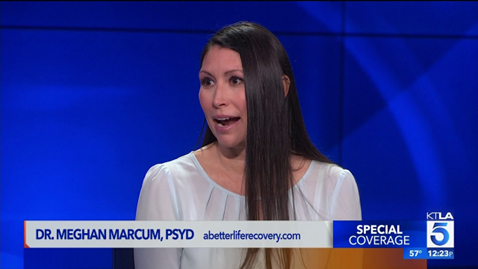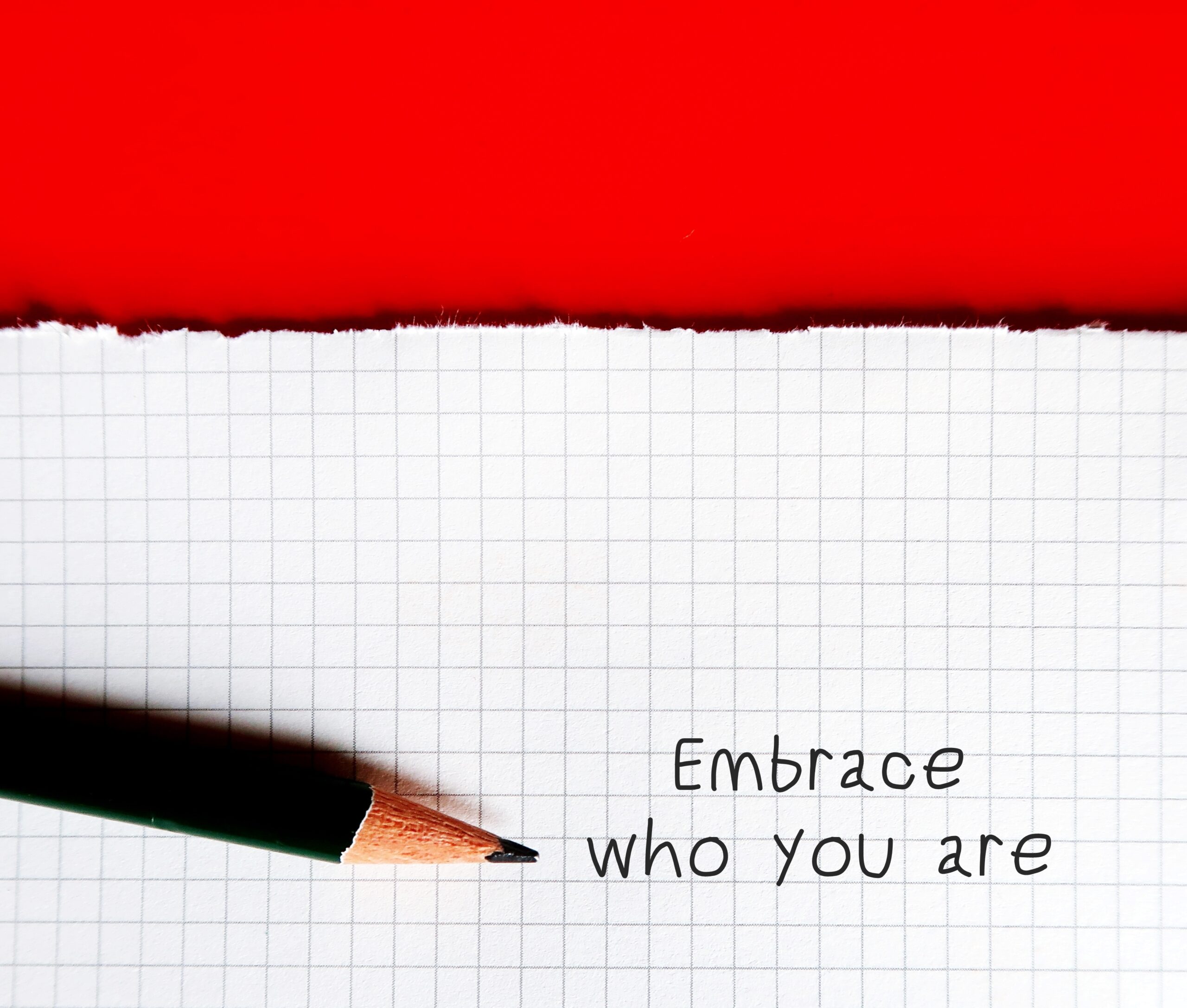We humans just want to fit in. A big part of our sense of security comes from feeling accepted by the group.
But what about accepting ourselves? Many people struggle with self-acceptance. That means acceptance of all of our attributes, positive or negative. It means accepting our strengths and faults without judgment.
For us to enjoy life and thrive, we must learn to embrace all aspects of ourselves, not just the positive or admirable. We must get better at accepting our thoughts, feelings, intuitions, values, preferences, and actions. Can we acknowledge our faults, weaknesses, and mistakes without beating ourselves up over them?
Having a healthy level of self-acceptance means not caring too much about what others think about us and not needing others’ approval to feel good and whole. It means viewing ourselves as whole and not defining ourselves by struggles, conditions, diagnoses, labels, or limiting beliefs. And it means making peace with parts of ourselves that have been painful or that we’ve denied or repressed.
Unfortunately, we tend to be bad at this. Many of us are brutal self-critics.

How might our lives change for the better if we could learn to appreciate, respect, and love ourselves—unconditionally, and free of any qualifications?
Self-Acceptance Doesn’t Mean Settling
It’s important to note that accepting ourselves in this way doesn’t mean settling for less. It doesn’t mean that we call it quits and just accept whatever’s in front of us, or that we stop learning and growing. Not at all.
It does mean that we stop rejecting ourselves for having struggles or not being perfect. By accepting ourselves in full, we can find great comfort, relief, and security.
“Accepting ourselves as we are today doesn’t mean we’ll be without the motivation to make changes or improvements that will make us more effective, or that will enrich our lives. It’s simply that this self-acceptance is in no way tied to such alterations. We don’t have to actually do anything to secure our self-acceptance:
We have only to change the way we look at ourselves.”
-Dr. Leon F. Seltzer, PhD, author and clinical psychologist
Where It Comes From
A lack of self-acceptance can come from many sources, often starting with childhood influences. Disapproving or overly critical parents may have given us the message that we’re somehow flawed—annoying, unruly, a hassle, too demanding, not smart enough, not attractive enough, etc. (Siblings, other relatives, teachers, coaches, or peers can reinforce this.) Overly critical parents can instill in us a bad habit of brutal self-criticism that echoes throughout our lives.
Our personality can also work against us when it comes to self-acceptance. For example, many people struggle with perfectionism. The assumption behind it is that the only route to self-acceptance is flawlessness—an impossible and self-defeating standard. Others struggle with “imposter syndrome” (the fear of people viewing us as a fraud or undeserving of our successes).
A dearth of self-acceptance can also come from living or working in an environment where diversity, equity, inclusion, and belonging are lacking. When we feel excluded by others, it’s harder to accept ourselves.
Our circumstances and experiences can contribute as well. Perhaps we got cut from the sports team or drama troupe in school, or we dropped out of school. Maybe we didn’t get promoted or make partner, or we got fired. Perhaps we’ve felt beaten down by divorce, bankruptcy, addiction, or trauma. Life can be painful and messy for all of us at times.
Surprisingly, many high-performers struggle with self-acceptance. In his book, Positive Intelligence, executive Shirzad Chamine notes that “hyper-achievers” depend on achievement for self-acceptance. He writes:
“The Hyper-Achiever makes you dependent on constant performance and achievement for self-respect and self-validation. It keeps you focused mainly on external success rather than on internal criteria for happiness. It often leads to unsustainable workaholic tendencies and causes you to fall out of touch with deeper emotional and relationship needs. Its lie is that your self-acceptance should be conditional on performance and external validation.”
-Shirzad Chamine, Positive Intelligence
Many people these days are needy—excessively attached to recognition, praise, or success, or to saving others—for self-acceptance. They have an excessive desire for affirmation or reassurance from others, making their happiness dependent and fleeting.
The Problem with Lacking Self-Acceptance
Without self-acceptance, we can be trapped in self-doubt, self-judgment, or even self-hatred. The problem is when we turn the inherent messiness of our lives into an identity and start rejecting ourselves because of it. That can lead to many problems, including:
- negative self-talk or even self-hatred
- damage to our psychological wellbeing
- reduced emotional control
- lower confidence
- avoidance of people or situations
- relationship challenges
- anxiety or depression
The effects of low self-acceptance are pervasive, potentially touching every aspect of our lives.
“Without self-acceptance, people essentially devalue themselves and this often has a negative impact on all areas of their life, including their work, friends, family, health, and well-being.”
-Dr. Meghan Marcum, PsyD, psychologist

The Benefits of Developing Self-Acceptance
What happens when we learn to accept ourselves as we are, not only with all our gifts and talents but also our faults and quirks? A healthy level of self-acceptance can help us:
- feel secure and free
- cultivate a sense of peace
- improve our wellbeing
- feel less compulsive and anxious
- protect our mood in the face of setbacks
- form a foundation for greater confidence
- develop better relationships
- build our capacity to distance ourselves from outside expectations and extrinsic motivations
- improve work performance
- boost happiness
“Happiness and self-acceptance go hand in hand. Self-acceptance determines your level of happiness.
The more self-acceptance you have, the happier you allow yourself to be.
You will only be as happy as you feel you are worthy of being.”
-Dr. Robert Holden, Happiness Now!
How to Develop Greater Self-Acceptance
Clearly, self-acceptance affects many areas of our lives, from mental health and wellbeing to relationships and work. So, how can we develop greater self-acceptance? There are many things we can do, including:
Re-examine our repeated self-criticisms and old feelings of guilt and shame. Interrogate them.
Delve into the things we don’t accept about ourselves—perhaps with the help of a therapist—and then bring understanding and compassion to them. Understanding and insight can sometimes bring welcome relief.
Forgive ourselves for mistakes we’ve made and resolve to move on, ideally focusing on the lessons we’ve learned from them.
Give ourselves permission to be imperfect, since we all have issues and faults. The point is to live life fully as who we truly are, not to pretend we’re some perfect being capable of existing without flaws and faults.
Replace our negative self-talk with positive self-talk, focusing on our capabilities and accomplishments.
Avoid self-blame and rumination on past grievances or suffering. Change the channel on those negative thoughts and tune into a more uplifting station.
Stop comparing ourselves to others, since little good comes of it and much harm can follow. Why? Because we lack visibility into the challenges of others while viewing their curated social media feeds. Also, it’s easy to compare our messy beginning with their more refined middle or end. We each have our own unique context that’s often vastly different from others.
Practice self-compassion. That means treating ourselves with warmth and understanding in difficult times—including instances of suffering, perceived inadequacy, or failure.
Identify, clarify, and embrace our personal core values. In the process, we’ll be strengthening our sense of identity and self-respect.
Spend more time with people who accept us as we are—and less time with those who don’t. Surround ourselves with people who believe in us, support us, embolden us, and bring out our best—including family, friends, colleagues, coaches, mentors, and small groups—while avoiding people who tear us down.
Try mindfulness meditation. Focus on observing our thoughts and feelings and then letting them go without judgment and attachment.
Keep a journal. Journaling can help us reflect on our experiences and feelings, understand them in new ways, and reframe them.
Upgrade our mindset by reframing our problems not as weights that bring us down but as puzzles to be solved, with all their challenge and mystery. Here we take our cue from Quincy Jones:
“I don’t have problems. I have puzzles…. I can solve a puzzle. A problem just stresses me out.”
-Quincy Jones, record producer, songwriter, and composer

Seek help via a professional therapist or counselor. (Consider starting with any of these resources: BetterHelp, SonderMind, Befrienders Worldwide, 7cups.)
Many of the practices above relate to self-regulation—our ability to monitor and manage our energy states, emotions, thoughts, and behaviors in positive ways (e.g., promoting wellbeing and healthy relationships).
Some Cautions
As we work on developing self-acceptance, we should avoid using accomplishment to bolster it, as that can make us dependent on factors outside of our control. If we can’t accept ourselves unless we’re successful, wealthy, or whatever, we’re missing the point.
We should also avoid focusing too much on ourselves and how we’re appearing and doing (e.g., Are we good enough? How do we stack up?). Instead, focus on contributing to others—our family, friends, colleagues, organization, community, and beyond. This will help us feel good and connect with people while having a positive impact.
Conclusion
Lacking self-acceptance can have devastating consequences in our life and work, while developing it can provide an incredible grounding power in so many aspects of our lives. It can facilitate relief, confidence, happiness, and success. It’s well worth developing and will serve us well in all we do.
Wishing you well with it.
–Gregg

Reflection Questions
- To what extent do you embrace all aspects of yourself with full self-acceptance?
- Do you struggle with negative self-talk or self-rejection?
- Are you willing to put in this foundational work to set yourself up for more enjoyment, happiness, and success?
Tools for You
- Traps Test (Common Traps of Living) to help you identify what’s getting in the way of your happiness and quality of life
- Quality of Life Assessment to help you discover your strongest areas and the areas that need work and then act accordingly
- Personal Values Exercise to help you clarify what’s most important to you
- Leadership Derailers Assessment to help you identify what’s inhibiting your leadership effectiveness
Related Articles
- “The Mental Prisons We Build for Ourselves”
- “Breaking the Trance of Unworthiness”
- “How to Build Confidence in Ourselves and Our Leadership”
- “Journaling: Benefits and Best Practices“
- “Do You Have Limiting Beliefs About Yourself?”
- “The Trap of Caring Too Much about What Other People Think”
- “The Comparison Trap”
- “Feeling Behind”
- “The Perfectionism Trap—And How to Escape It”
- “Are You Living a Divided Life?”
- “Is Your Identity Wrapped Up Too Much in Your Work?”
- “Neediness”
- “The Power of Reframing to Change Our Outlook“
Postscript: Inspirations on Self-Acceptance
- “Remember, you have been criticizing yourself for years, and it hasn’t worked. Try approving of yourself and see what happens.” -Louise L. Hay, author
- “You are imperfect, permanently and inevitably flawed. And you are beautiful.” -Amy Bloom, writer and psychotherapist
- “All you need is already within you, only you must approach your self with reverence and love. Self-condemnation and self-distrust are grievous errors.” -Nisargadatta Maharaj, Indian guru
- “Love yourself first and everything else falls into line. You really have to love yourself to get anything done in this world.” -Lucille Ball, actress, comedian, and producer
- “Wholehearted living is about engaging with our lives from a place of worthiness. It means cultivating the courage, compassion, and connection to wake up in the morning and think, ‘No matter what gets done and how much is left undone, I am enough.’ It’s going to bed at night thinking, ‘Yes, I am imperfect and vulnerable and sometimes afraid, but that doesn’t change the truth that I am also brave and worthy of love and belonging.’” -Brené Brown, The Gifts of Imperfection
++++++++++++++++++++++++++++++
Gregg Vanourek is a writer, teacher, TEDx speaker, and coach on personal development and leadership excellence. He is co-author of three books, including LIFE Entrepreneurs: Ordinary People Creating Extraordinary Lives (a manifesto for living with purpose and passion) and Triple Crown Leadership: Building Excellent, Ethical, and Enduring Organizations (a winner of the International Book Awards). Check out his Best Articles or get his monthly newsletter. If you found value in this article, please forward it to a friend. Every little bit helps!







